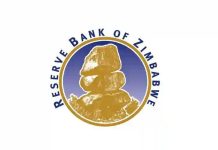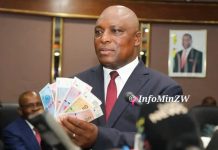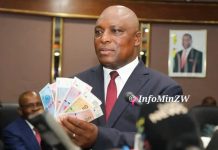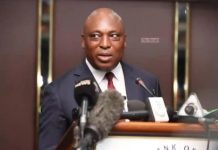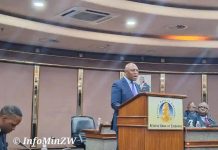Fuel companies and service stations selling petrol and diesel in foreign currency after buying it in local currency will be audited by the Reserve Bank of Zimbabwe, the Secretary for Energy and Power Development, Engineer Gloria Magombo has said.
By law, only fuel specially imported using free funds by an oil company can be sold in foreign currency, and even then stations have to be licensed to do this.
She appeared before Parliament’s Portfolio Committee on Energy and Power Development yesterday and was pressed by legislators to explain why many service stations were no longer accepting the local currency even when they bought the fuel in Zimbabwe dollars directly or indirectly through an oil company.
The Ministry of Energy and the RBZ met last Friday to discuss the issue.
“We have agreed with the RBZ, through its Financial Intelligence Unit, that it should do that audit for these companies to respond to what we also feel could be happening in the market so that whoever is selling in foreign currency, that money is accounted for. We want to look at it and it’s an area that is of concern to us as Government,” she said.
The Zimbabwe Energy Regulatory Authority (Zera) had been tasked to come up with regulations on the matter.
Eng Magombo said Zimbabwe was still using a dual currency system and there was no reason for service stations to reject the local currency. Government insists that where fuel has been procured using Zimbabwe dollars, it should equally be sold in the local currency. Only fuel directly imported by oil companies using free funds is allowed to be sold in foreign currency.
Institutions of higher learning have also been engaged to come up with tracking systems to stem leakages in the fuel sector, which have worsened fuel availability in the country.
Eng Magombo added that they were engaging players in the industry to come up with mechanisms to consolidate fuel procurement.
“We are working on streamlining the industry’s structure; we are looking at a procurement framework where we want to consolidate that framework and we have been engaging industry, and by end of this year, we would have come up with a framework for procurement,” she said.
On the licensing regulations, Eng Magombo said they will soon be outlining penalties for operators who fail to adhere to a code of conduct and requirements of the law.
Petrotrade acting chief executive Mr Godfrey Ncube, who also appeared before the same committee, said liberalising the fuel sector to allow players to import fuel on their own would eliminate shortages.
He said when Zimbabwe was using multiple currencies, it did not experience fuel shortages as players would make arrangements through banks to import fuel.
But he cautioned that under those circumstances, prices would rise beyond the reach of many motorists.
“Now that I am running a Government company and also interacting with other players in the private sector, I think it (liberalising) would be ideal though painful.
“It would be ideal to let the controls in the fuel sector go and allow players to set the prices and bring their in their fuel. I think that way, it would eliminate the queues,” said Mr Ncube.


